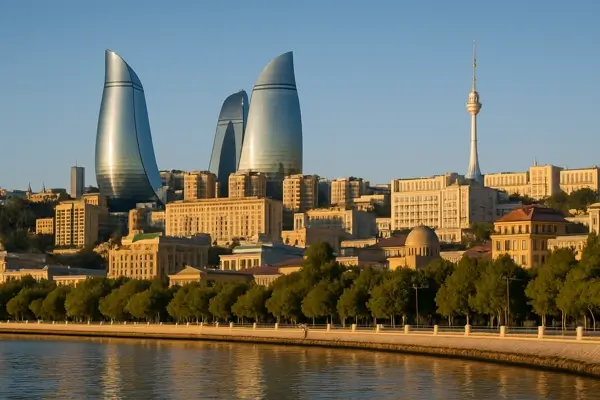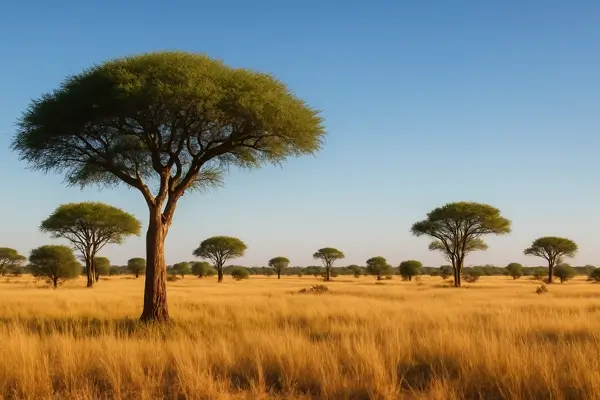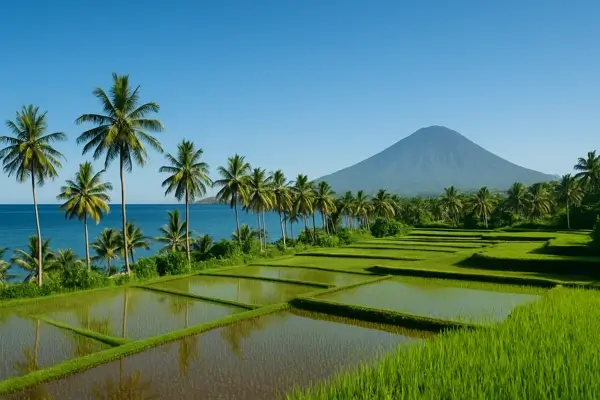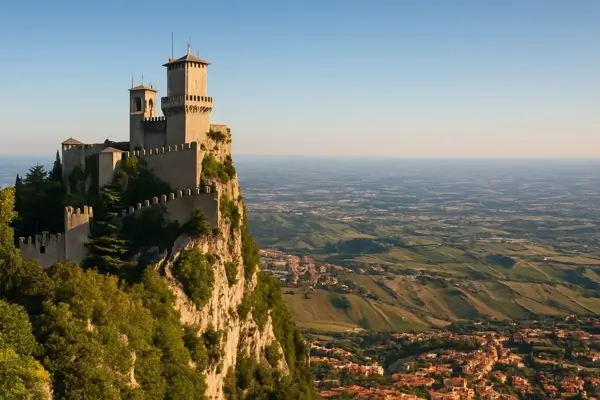
A Land of Contrasts
Azerbaijan is a country of diverse landscapes and climates, ranging from the Caspian Sea coast to the snow-capped mountains of the Caucasus. It features vast steppes, lush forests, and deserts, creating a stunning contrast in its natural beauty. The country is one of the few places where you can experience both the heat of the desert and the coolness of the mountains in close proximity.
The Land of Fire
Azerbaijan is often referred to as the "Land of Fire" due to its ancient connection with fire worship and the presence of natural gas reserves. One of the most famous sites is the Yanardag ("Burning Mountain"), where flames spontaneously erupt from the ground due to natural gas leaks. The country’s long history of fire worship dates back to the Zoroastrian era, and the Ateshgah Fire Temple near Baku is a testament to this ancient tradition.
Azerbaijan’s Oil Legacy
Azerbaijan is one of the world's oldest oil-producing regions, with oil exploration dating back to ancient times. Baku, the capital, was a major center for oil production in the late 19th and early 20th centuries, and the city’s oil history has significantly shaped the country’s economy. Today, Azerbaijan remains a key player in global energy markets, with vast reserves of oil and natural gas.
Home to One of the Oldest Human Settlements
The Gobustan Rock Art Cultural Landscape, located near Baku, is home to ancient petroglyphs that date back to the Upper Paleolithic period, over 5,000 years ago. These rock carvings, which depict animals and human activities, are UNESCO World Heritage sites and provide important insight into the early history of human civilization in the region.
A Country of Language and Culture
Azerbaijan's official language is Azerbaijani, which is a Turkic language closely related to Turkish. The country’s culture is influenced by a blend of Turkic, Persian, and Russian heritage, reflected in its music, art, and architecture. Azerbaijani music, particularly mugham, is an important cultural expression and recognized by UNESCO as an Intangible Cultural Heritage of Humanity.
The Caspian Sea
Azerbaijan borders the Caspian Sea, the world’s largest enclosed body of water. The country has access to important shipping lanes and a thriving fishing industry. The Caspian Sea is also famous for its biodiversity, including the endangered Caspian seal and sturgeon, which are known for producing the highly prized caviar.
A Rich Culinary Tradition
Azerbaijani cuisine is known for its flavorful dishes, which feature fresh herbs, meats, and vegetables. Signature dishes include plov (a rice pilaf), dolma (stuffed grape leaves), kebabs, and piti (a lamb stew). The country is also famous for its delicious tea, which is often served with sweets such as baklava and shekerbura during holidays and special occasions.
The Flame Towers
Baku’s skyline is dominated by the Flame Towers, a trio of modern skyscrapers that are designed to resemble the flames that have symbolized the country’s history and culture. The towers are a striking feature of the city, especially when illuminated at night. They represent Azerbaijan’s rich oil history and are a modern symbol of the country’s progress and development.
Azerbaijan’s Diverse Religion
Azerbaijan is a secular country with a predominantly Muslim population, though there is also a significant Christian minority. The majority of Azerbaijanis are Shia Muslims, with a smaller Sunni Muslim population. The country has a long history of religious tolerance, and its diverse religious communities coexist peacefully, with churches, mosques, and synagogues located in many cities across the country.
The Silk Road Heritage
Azerbaijan has a rich history as part of the ancient Silk Road, the trade route that connected the East and West. The country served as a crossroads for merchants, travelers, and cultures for centuries, and its cities like Baku and Ganja were key stops along the route. This historical connection is reflected in the country’s architecture, cuisine, and cultural traditions.
The Gobustan Mud Volcanoes
Azerbaijan is home to nearly half of the world’s mud volcanoes, many of which are located near Baku. These fascinating geological formations erupt with mud instead of lava and are believed to have therapeutic properties. The mud volcanoes are an important feature of Azerbaijan's unique natural landscape and attract visitors interested in geology and adventure tourism.
Baku’s UNESCO World Heritage Sites
Baku, the capital of Azerbaijan, is home to several UNESCO World Heritage sites, including the Old City (Icherisheher), which is a walled historic center full of ancient mosques, palaces, and narrow streets. The Maiden Tower, an ancient structure dating back to the 12th century, is one of Baku’s most iconic landmarks.
Azerbaijan’s Rich Textile Tradition
Azerbaijan has a rich tradition of carpet weaving, which is an integral part of its cultural heritage. Azerbaijani carpets are known for their intricate patterns, vibrant colors, and fine craftsmanship. The country has several carpet museums, including the Azerbaijan Carpet Museum in Baku, which showcases some of the finest examples of this art form.



